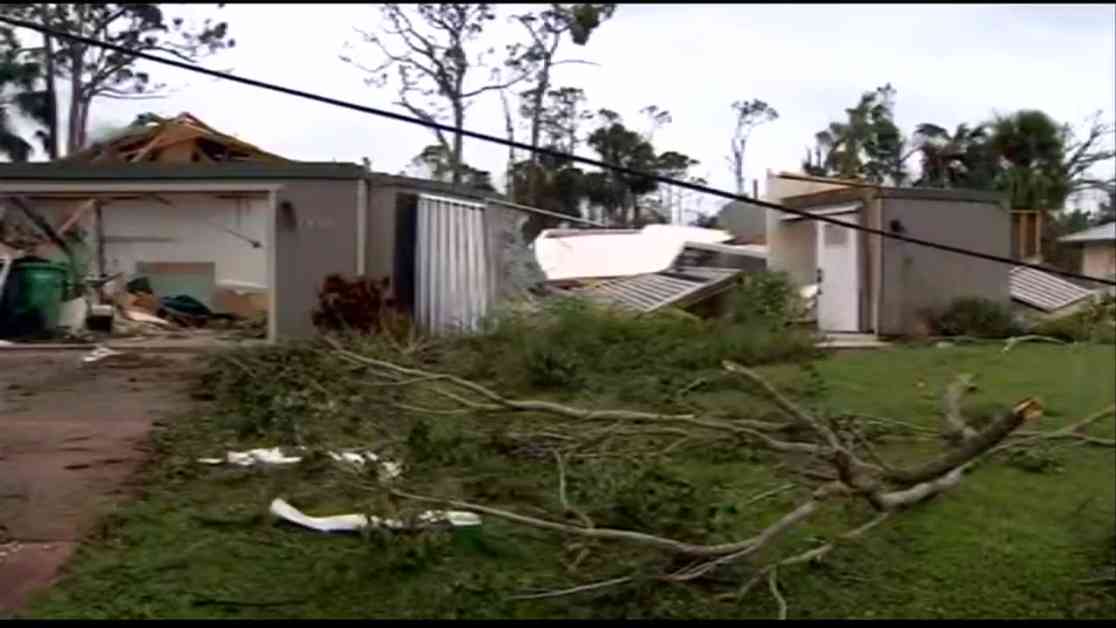Hurricane Milton recently caused a destructive tornado outbreak in Florida, catching many residents off guard. The violent twisters were seen crossing highways, ripping off roofs, and downing trees and power lines, leaving a trail of destruction in their wake.
Debbie Jones, a resident of Ft. Pierce, described the terrifying moment when she felt a drop in pressure and her ears popping, realizing that a tornado was approaching. She quickly took shelter with her family and their four dogs, barricading themselves in the back of the house away from windows.
According to the National Oceanic and Atmospheric Administration Storm Prediction Center, there have been 38 preliminary eyewitness reports of tornadoes in Florida since Wednesday night. This number is expected to rise as damaged sites are assessed in the coming days.
Tragically, five deaths related to tornadoes occurred in the Spanish Lakes Country Club near Fort Pierce. Homeland Security Secretary Alejandro Mayorkas mentioned that there were reports of as many as 10 fatalities from tornadoes, but the number is still tentative.
The ferocity of the tornadoes spawned by Hurricane Milton was unusual, as hurricanes typically produce weaker tornadoes. However, the conditions were particularly favorable for the formation of these powerful twisters, with Hurricane Milton spending the day offshore, creating the right environment for their development.
Hurricane Beryl previously spawned 65 confirmed tornadoes across several states, while the most tornadoes ever caused by a hurricane was 118 from Hurricane Ivan in 2004. The tornadoes from Hurricane Milton, however, all occurred in Florida over just eight to 10 hours.
Experts emphasize the importance of keeping accurate records of tornadoes and their damage, as tornado activity can vary throughout different seasons. While the warming of the oceans due to climate change is making hurricanes more intense, there is no known connection between human-caused warming and the deadly tornadoes experienced in Florida with Hurricane Milton.
Florida is no stranger to tornadoes, as it has more tornadoes per square mile than any other state. While they are typically not as severe as those in the Midwest and Plains, a significant outbreak of powerful tornadoes in Central Florida in 1998 serves as a reminder of the potential devastation they can cause.
In conclusion, the recent tornado outbreak in Florida serves as a stark reminder of the destructive power of hurricanes and the importance of being prepared for severe weather events. Residents are urged to stay informed and take necessary precautions to ensure their safety during such natural disasters.


